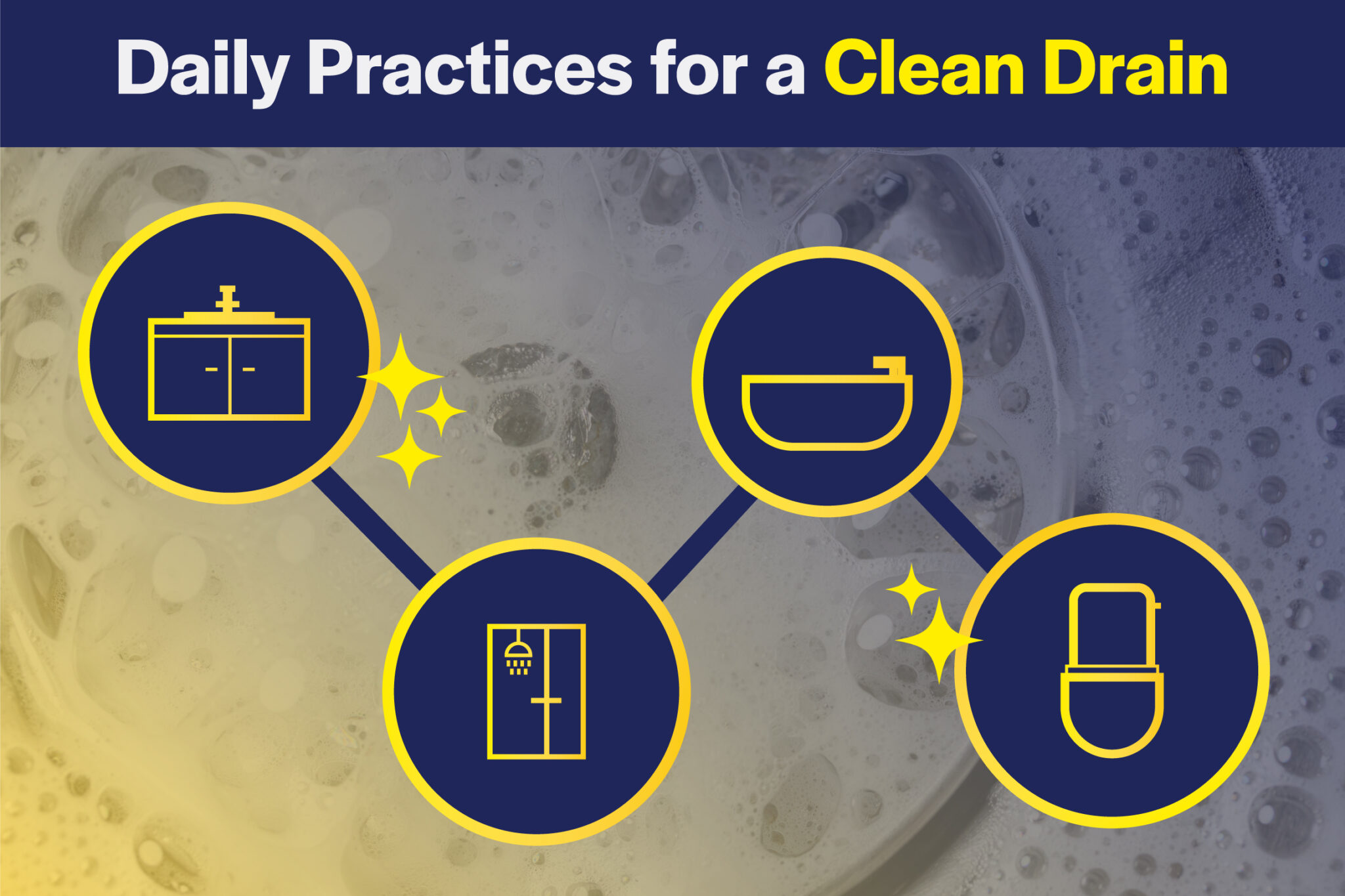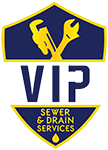
Plumbing fixtures such as kitchen sinks, toilets and showers tend to get used every single day. In certain households, sometimes heavily! Keeping your drain clean, following certain best practises and being mindful in how you use your plumbing fixtures daily will significantly aid in prevention of messy clogs, leaks and costly repairs. Because nobody likes those! Let’s go over a few simple and easy steps you can take as you go about your day, to maintain your drains in great condition before problems start to come up.
Be kind to your garbage disposal
First off, if your kitchen sink is not equipped with a garbage disposal, you should never use your drain to flush down leftover food particles. This will guarantee buildup and a nasty clog that will be much more of a hassle to remove, than to simply place your ‘garbage’ in the garbage.
How does a garbage disposal work?
Think of your garbage disposal as a little blender inside your kitchen drain. This little blender breaks down what it takes in and then flushes it into your drain, where it can make its way to the sewer line. However, it’s important to understand that the blades in your garbage disposal, while blunt, are actually not as sharp as you may think and therefore you really should mind what you put in your disposal.
What should not go in the garbage disposal?
Here’s a few things that should never go down your disposal:
- Grease and oil
- Stringy foods such as banana peels, celery, pumpkin etc.
- Bones
- Coffee Grounds
- Egg Shells
- Fruit pits
- Pasta
- Onion skins or Potato peels
- Oatmeal
- Nuts
It’s important to always turn your water and disposal on before adding anything down the drain and run cold water for at least 15 seconds after using the disposal. Cold water will keep certain materials in solid state, ensuring that they get grounded up and completely flushed down the main line.
Shower and Tub Drains
Drain traps, especially in showers, prevents hair and waste from entering your drain – which is the number one culprit of a slow drain. This is especially helpful if you have furry friends living with you at home and you groom them yourself. Avoid using many oils when you shower as those tend to solidify in your drain and cause buildup. While many shampoos or body washes will cause this over time and preventing all these products from going down the bathroom drains is close to impossible, not overdoing your relaxing spa days will save you a headache later. Being careful not to regularly flush globs of toothpaste or hair gels down your sink drain, will not only help save your drain, but also save you money on wasted product,
Look for Leaks and address them right away
This is something you’ve heard us say before (and we’ll probably say it a few more times) but addressing leaks immediately is essential to a properly maintained drain. A leak is a sign that there is already an issue that needs fixing and while it doesn’t necessarily mean the issue is extreme, it can quickly escalate if you ignore it. A leak near your kitchen sink or in the laundry room can cause bubbling in your walls or furniture, wet stains, mold and unpleasant odors. On tips on how to detect a leak, check out our guide here.
Watch what you flush
Just like with your garbage disposal it’s important not to flush anything other than human waste and toilet paper down your toilet. Even products that claim to be flushable such as wipes, are better off in the trash bin. Cotton swabs, dental floss and the dreaded paper towels should never get flushed down your toilet.
While you may think that you’ve gotten away with flushing some of these products before – they are pretty much guaranteed to cause severe blockage somewhere down your drain sooner than later. To avoid such a messy predicament (and a lecture from your plumber) always make sure these products are disposed of correctly.
While understanding how your plumbing system works and being mindful in how you use it in your day to day life will help keep it working properly and efficiently – certain measures should be taken annually or seasonally to further the care of your drain. Check out our resource library for other useful plumbing tips and remember that for plumbing emergencies are trained and professional staff is ready to assist you 24/7


